Terms of use of the service for registered companies
all of the images and graphic material will be automatically resized, reducing the resolution of the images to allow a faster internet connection.

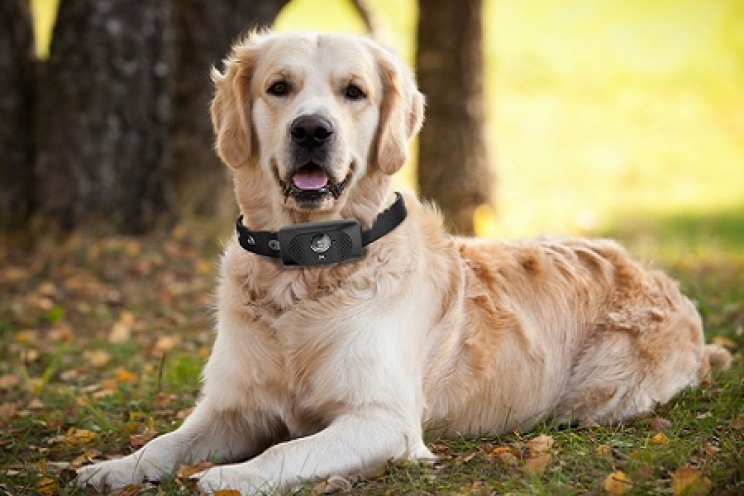
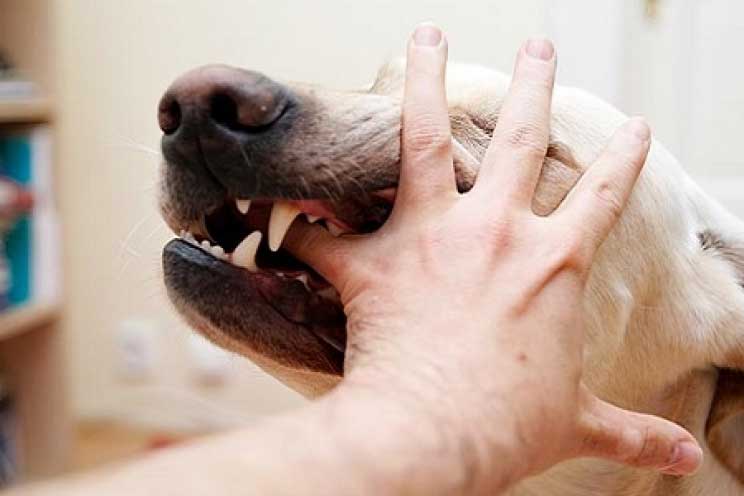
Animals know how to defend themselves in case of fear or threat thanks to their sharp claws and their strong
… Read More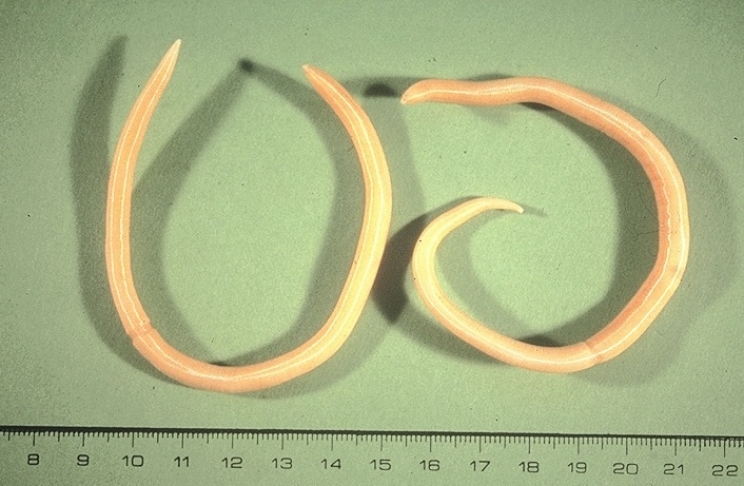
When we adopt a dog or a cat, generally when they are small, we often hear doctors talking about worm
… Read MoreTerms of use of the service for registered companies
all of the images and graphic material will be automatically resized, reducing the resolution of the images to allow a faster internet connection.
All dog owners know that the owner should take care of their pet. So, from a young age, we try to get him used to our habits and train him to ensure a civil coexistence with other dogs and with other people we meet, wherever we are.
If our dog decides however to bite someone, the bite might need hospital help and some kind of first aid kit. At this point, what will happen to us as owners of the dog? or what will happen to our dog?
The first consequences
Firstly, always exchange your name with the owner of the other dog: this will avoid the most serious consequences, because we are assuming our responsibilities even if we will probably have to compensate for damages to the other. If we run away we will certainly be running away from our duty, if we are tracked down by the police, the consequences, (usually economic) will be much heavier.
Probably a few days later, we will receive a call from the veterinary service of the competent ASL, asking us to visit our dog.
First of all, let's dispel a false myth: the dog will not be killed, but only visited. In fact, the logic is to try to understand if the biting dog is suffering from rabies or not. It is unlikely that the dog will have rabies, especially if he lives with us, (Italy has been free from rabies for many years, except for some cases that occurred a few years ago in Trentino Alto Adige, the border region) but the public service must still check. The vet visit is at our expense.
Reference is made to the veterinary police regulation, law 320/54 and subsequent amendments.
In the event of a bite, the dog (which has bitten) must in fact be imprisoned for 10 days. In the past, they were imprisoned in a kennel, while today "house arrest" is preferred: the dog cannot leave the confines of our property for 10 days. However, we are forced to report any changes in the animal's behaviour to the ASL, in particular demonstrations of aggression.
If there are no particular consequences, (from the point of view of the public service) everything will be solved. If we come across a particular event, additional checks will be carried out.
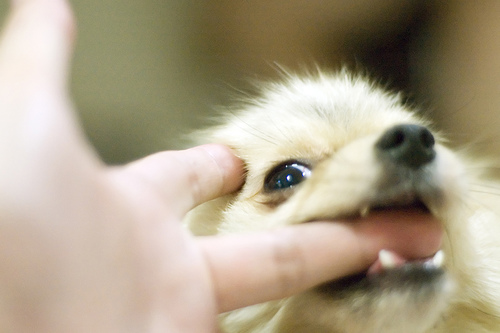
The longer consequences
The longer-lasting consequences of biting are generally financial. In fact, if our dog has bitten another person or another animal, the law blames it all on the owner, who is responsible for the aggressive behaviour of his dog; the damaged individual (either the other dogs owner or another person) has the right to seek damages.
The advice is to find an agreement without entering into legal disputes; if he is a person you can maybe discuss some options. (Maybe we will be able to pay the veterinary expenses if his dog is bitten).
The alternative is to go before the judge, with all that follows. To avoid this, we both sign a notice in which we will write that neither party will take legal action following the bite of ... (date); we also keep a photocopy of the other person's identity card.
If, on the other hand, we continue in front of a judge and our dog is responsible, it will always be our personal fault. We can however request a reduction in damages to be compensated, obviously with the support of a lawyer.
We should always remember that reporting the bite is mandatory, and that if a person goes to the emergency room or to a veterinary clinic, doctors and veterinarians are forced to transmit the report to the ASL. If we can, therefore, we try to avoid, as "civilized people", all the disputes that could arise. We should always keep the dog on a leash when we are in a public place, in order to minimize the possibility of aggression.
Many people like us, nurture the passion for animals, especially cats and dogs.
Many of us are volunteers from associations for the defense of our four legged friends. Our intentions with this media is to help these people and all animal lovers to solve small and big problems that we might face daily with our animals.
Moreover, we want to create a community to help to help people through services and information inside the website animal lovers like us!
To make this possible, we need your help to share this web page with your friends or colleagues in order for the site to be more visible and allow us to bring up new content full of interesting and important information for the well being and health of your pet.
A well-behaved dog is unlikely to attack another dog or a stranger. However, it can happen, especially for guard dogs that live in gardens and farms, that poor unfortunates are bitten or even attacked by one or more dogs. What does the law say about it?
One of the most frequent situations is that of the daily walk. We are walking around quietly with our dog, when suddenly from a distance we see another angry dog coming towards us, also without a leash, pointing right at us.
In these cases, we can do very little to prevent our dog from being attacked. Our instinct immediately drives us to throw ourselves into the fray to try to separate them. That’s exactly how we take a good bite too.
If we are lucky, the owner can offer to accompany us to the emergency room and our dog to the vet, and paying all the expenses.
Unfortunately, this does not always happen. The most frequent cases are those in which the owners of the "biting" dogs deny any responsibility and run away without thinking twice.
What not everyone knows, however, is that when a dog bites us or our pet, the owner of the "biting" animal is entirely responsible for the damage caused by his dog. In fact, according to art. 2052 of the Civil Code, "The owner of an animal or whoever has it for the time in which it is in walking or outside, is responsible for the damage caused by the animal, whether it was in its custody, whether it was lost or escaped" .
This ruling is no exception even for dogs kept on a leash or in any case, for owners who have tried in every way to stop their pet.
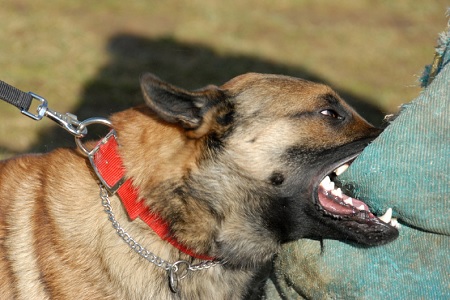
Furthermore, in the event that the attacked person should also accuse severe trauma, a common event especially in children, the parents or interested parties would have the opportunity to resort to lawyers to be compensated for any psychological expenses.
After the bite, the attacked person can go to the nearest emergency room, where standard procedures will be activated that will be used to assess the psychological and health status of the animal. The owner must ascertain the vaccinations to which his dog has been subjected, and, if necessary, precautions will be taken to assess the absence of communicable infectious diseases.
A form is then issued by the first aid staff, showing the data relating to the person attacked, the "biting" dog and the circumstances in which the episode occurred. One part of the form is sent to the local health service, while another part is delivered to the attacked person, who may decide whether or not to pursue a complaint against the owner of the attacking dog.
In view of this legislation, therefore, a good solution could be to insure your dog, to be adequately covered in case of bites or aggression towards other animals or other people. Of course, this should not overshadow a good education.
In recent days, we have been hearing a lot about the issue of stray dogs, with particular reference to the possibility of feeding and giving them water on the streets. It is summer, and the life of many dogs and cats that live in the street and in the countryside can really depend on a simple bowl of water and a piece of bread. The law, however, still seems unclear in this regard.
It is a fact that not all citizens and politicians are animal lovers. However, in some cases, indifference attitudes can almost be the same as maltreatment. In the last period, in fact, we are witnessing a real parade of news and cases of unbelievable events, in which the mayors forbid the population to take care of stray dogs, feeding them and quenching their thirst.
All this is definitely absurd, especially when compared to the recent decision of the city administration of Istanbul, which decided to equip the entire city with original dispensers, which in exchange for a plastic bottle to be recycled, dispense a handful of pet food. The dogs can then feed themselves when they have necessity.
Let's talk, for example, of the woman from Siliqua, in the province of Cagliari, who in 2009 found herself with a fine of 105 euros, for offering food and water to a poor stray dog dying in front of her in front of the local nursery. In this case, the Mayor appealed to ordinance 38 of April 1, 2009, according to which it is forbidden to feed a stray animal. The lady's protests and appeals against the traffic police and the mayor were of no use.
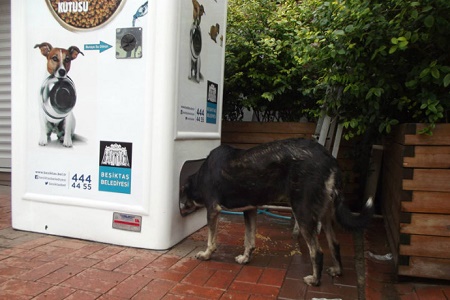
A similar event occurred in 2012 in San Vito dei Normanni, in the Brindisi area, in which the mayor Alberto Magli had issued an ordinance to prohibit feeding stray animals, following a report by the local ASL, "an increase in 'soiling of public land with consequent increased risk of transmission of endoparasite infections to the population ”. The outcome of the matter was clear: "It is forbidden in the urban perimeter to feed animals wandering around the area".
Again, the citizens did not accept the decision, appealing directly to the animal welfare associations "League for the abolition of hunting" and "Earth". The judge accepted the protest of the animal rights activists, judging the ASL association declaration to be groundless, which had never provided any real and verifiable evidence, as shown in the official text. That is not all. In fact, the Mayor's ordinance was considered contrary to the current legislation on stray animals, in particular the Law of August 14, 1991, n.281, "Framework law on pets and prevention of stray animals”
The ASL association, as the legislation states, is required to control the births of stray dogs and cats, encouraging free sterilizations, and absolutely never killing animals unless they are "seriously ill, incurable or proven dangerous". Also according to the law, "the activists and associations may, in agreement with the local health units, manage and control the colonies of cats that live on the streets, ensuring their health care and survival conditions". Survival depends on some water and some food.
More recent, however, is a similar issue that occurred in Calabria in the last few days. The associations "Earth" and "Association of hunting victims" have appealed to the Regional Administrative Court for Calabria against the Municipality of Cropalati. In 2014, in fact, the City Council had promoted the prohibition, so it is not allowed to "to feed, even occasionally, stray dogs owned by others or without property". According to the Judges of the Calabrian TAR, the ordinance is totally in contrast with the current regulations against the mistreatment of animals.
In conclusion, there is currently no law that can prohibit us from feeding and giving fresh water to stray animals, in the country as well as in the suburbs. Indeed, if some citizens were to complain or call the authorities to prevent us from doing so, they would have no right.
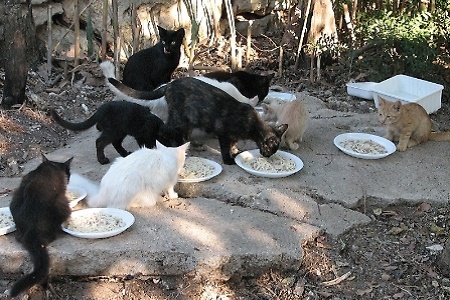
An unfortunate situation that can occur in some cases, moreover, is that the traffic police decides to fine us because we are "smearing" the public soil, whilst feeding a stray animal. Knowing the regulations and considering what has happened in other places in Italy, it is our right to let the Vigilant know that we are not violating any regulations, unless the Mayor has issued a specific ordinance.
Unfortunately, not everyone has the financial means to face an appeal against a fine, however unfounded it may be. Therefore, in these cases we should try to deal with the problem verbally with the authorities, always asserting our rights. Otherwise, we will necessarily have to pay what is due.These things, however, should not go unnoticed.
If, however, there is already a union order, we can rely on the numerous associations active in the animal welfare sector, as happened in the examples quoted in this article.
In conclusion, we can therefore place bowls of water or food for the animals, whilst appealing to our common sense. The water does not get dirty, but the food does, so we try to clean it as soon as the animal has finished refreshing himself.
Socialdogcat.com is a community which is interested in your animals well being and specifically applies to people that have a pet themselves. We offer scientific information, services and contacts with professionals and commercials. We also offer scientific based opinions on the health of your animal.
The main communication tools that we use for our customers are indeed our web site, Facebook, Google+ and Twitter.
In a limited amount of time we have reached a great amount of users every day and we had numerous contacts with journalist who sign up in our website daily to use our platform.
www.socialdogcat.com wants to be the landmark for pet owners that are looking for reliable, punctual and up to date information about animals. We also offer our customers the best opinions on services such as vets, breeders, family homes...
www.socialdogcat.com is a portal full of complete and interesting articles where you can research about anything and actively communicate with comments under each article or post. You can also directly keep in touch with experts and collaborators.
Our platform will offer agencies great visibility opportunities with advertising spaces such as banners or newsletters. Through these advertisements you might communicate with you target using a specialized channel and by profiling preferences from a rich data base of online users. (in full compliance with privacy legislations.)